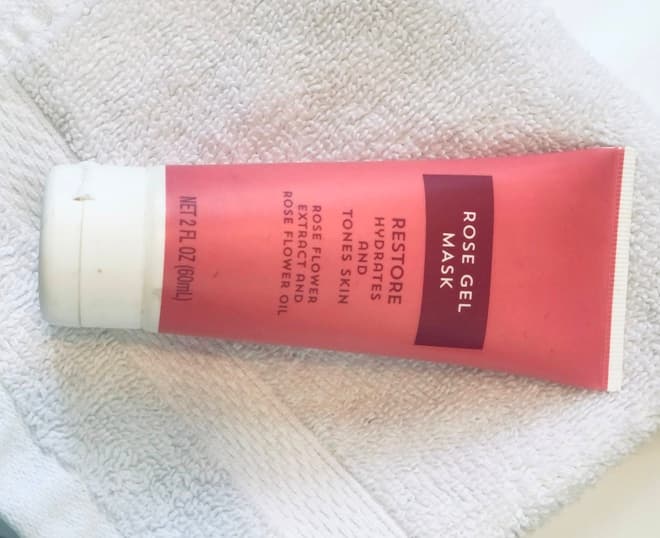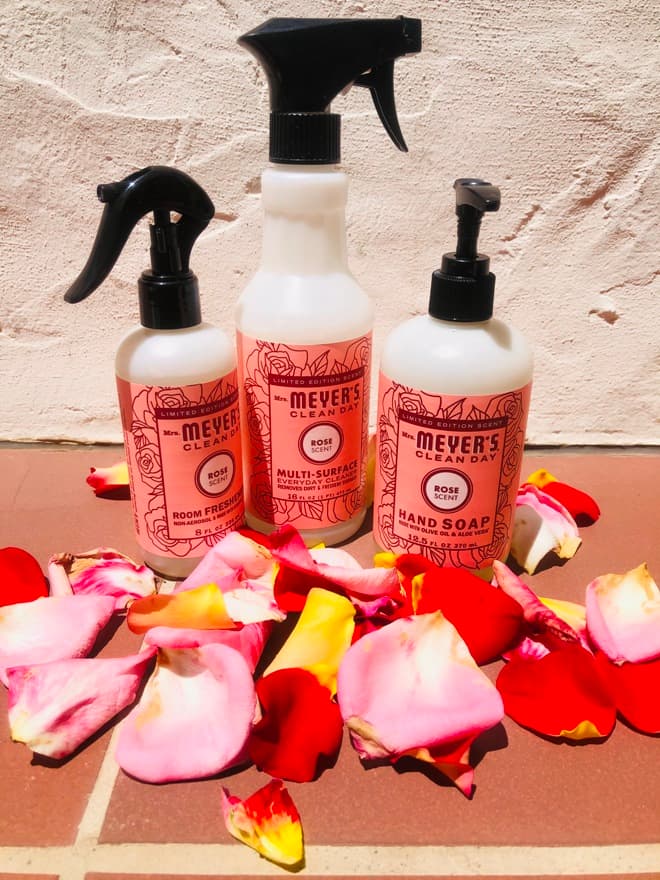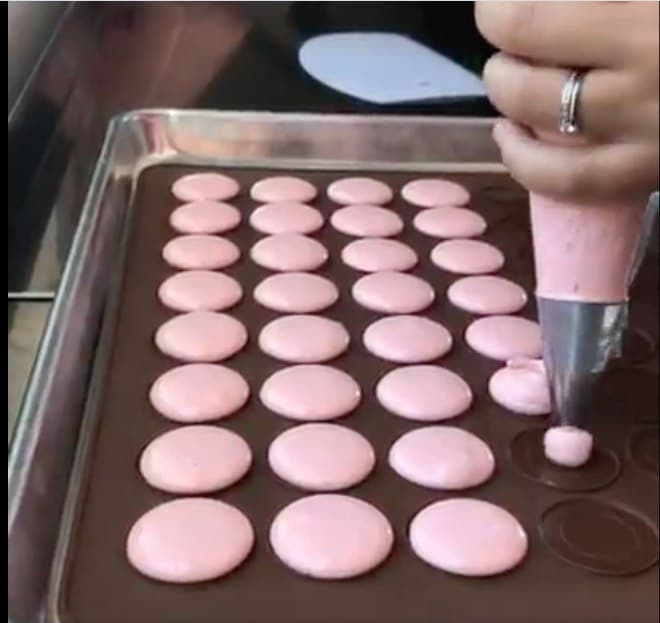
Photo Credit: Red Rose, by Carrie Borzillo
Everything’s coming up roses! Everywhere we look there’s a new rose product on the market for your skin, home, or belly! In your regular grocery stores, you can find rose-scented household cleansers and soaps by Mrs. Myers, rose water drinks by Dirty Lemon, and even rose water shampoo and conditioner by Pantene. Cosmetic and convenience stores offer up every category of product with rose water or rose oil, from facial sprays and cleansers to masks and moisturizers to serums and creams. The new season of “Top Chef: Portland” even did a cooking with roses food challenge using rose salt, rose sugar, rose water, dried rosebuds, and rose extract.

Photo Credit: by Carrie Borzillo
Roses are certainly having their day for our culinary, wellness, and skincare needs. Since we’re in the midst of the prime rose season, let’s take a look at all we can do with the mighty rose other than throwing them in a vase or sprinkling their petals in a bubble bath. So, stop just “stopping to smell the roses,” it’s time to stop and simmer, drink, and eat the roses!

Photo Credit: Rose Cleanser, by Carrie Borzillo
Rose Water for Beauty
Egyptian Pharaoh Cleopatra might be most known for bathing in milk, but did you know that her milk bath was also filled with honey and rose water? Rose water, which contains antioxidants including flavonoids and anthocyanins, has antiseptic and antibacterial properties that help to detoxify, balance the pH of skin, reduce redness, and calm inflammations. Studies have shown that due to its strong anti-inflammatory properties, rose water might even soothe the irritation of rosacea and eczema, as well as treat light burns, cuts, and scars.
According to Medical News Today, rose water also has anti-aging properties. “Rose water acts as an inhibitor against elastase and collagenase, which are both harmful to the skin. This, in turn, can help soothe the skin and reduce redness, as well as act as an anti-aging product by reducing the appearance of lines and wrinkles,” reports MNT.
You can bottle it up for a mild, delicate toner for your face to be used after cleansing, put it in a spray bottle to use as a facial spritzer on a hot summer day, or be like Cleopatra and add it to your bath water. Due to its mild scent, you can also use this as a fragrance. Your homemade rose water can last about a month in the refrigerator.
Here’s how to make it:
Ingredients/Tools:
● 2 cups of loose, clean red rose petals from any type of rose. If you are plucking these from your own garden or from stems, make sure you clean them first and rid them of any bugs, dirt, or other debris.
● 3 cups of distilled water (just enough water to submerge the petals)
● Sealed jar
● Strainer
Instructions:
1. Simmer the petals in the water in a saucepan on medium heat for about 20 minutes or until they’ve lost their color. Don’t let them boil!
2. Strain the petals, store the water in a glass jar, and discard the petals.
3. Before packaging up, let the water cool completely.
4. Funnel into a glass jar with a lid or a spray bottle.
Rose Water for Food & Drinks
You don’t have to just spray the rose water on your face or bathe it in it, you can drink and eat it as well. Due to its anti-inflammatory effect, rose water can help soothe sore throats, aid in digestion, ease constipation, and reduce upset stomachs.
Rose water is also full of vitamins, including Vitamin A, Vitamin C, Vitamin D, Vitamin E, and Vitamin B3, which work both topically or when ingested as a beverage. Beverage companies such as Juice Press, Dirty Lemon, and H2Rose are having success with new lines of drinks made of rose water and touting their health benefits. Dirty Lemon + Rose, for instance, is marketed as a vegan, anti-aging beauty elixir with potent polyphenols and antioxidants that decrease stress, support anti-aging, and protect against free radical damage.
Aside from drinking rose water as-is, it’s now a common ingredient in many drink and food recipes. It’s been used to flavor teas, candies, and baked goods from cakes to macaroons to pastries. Check out this simple and refreshing Rose Water Iced Tea recipe from The Spruce Eats:

Photo Credit: by Instagram IG @Pastreez
Ingredients:
● 3 teaspoons black tea
● 2 heaping teaspoons dried rosebuds
● 2 cups boiling water
● 2 teaspoons honey
● 1/4 teaspoon rose water
Instructions:
1. Brew the tea leaves and rosebuds in boiling water for five minutes.
2. Strain the tea and stir in the honey.
3. Chill the mixture for about three hours.
4. Pour over ice, add rose water, stir and serve.
While research shows that rose water can usually be used without any side effects, it’s always best to consult your doctor or dermatologist first.
Rose Oil for Wellness
You don’t need a rose garden in your backyard to be able to stop and smell the roses every day. With a little bottle of rose essential oil, which you can buy online or anywhere you get your favorite essential oils, you can get a whiff of this calming, sweet smell anytime. Rose essential oil is often used in aromatherapy to help relax the mind, decrease stress and anxiety, and even relieve pain.
One study showed that postoperative children who inhaled rose oil found a significant decrease in their pain levels. Researchers attribute this to their belief that rose oil may have stimulated the brain to release the “feel-good” hormones, endorphins. Another study showed that when rose oil is applied to the skin, the participants showed lower blood pressure, heart rates, breathing rates, cortisol levels, and blood oxygen levels. While yet another study showed that rose oil helped lower the anxiety of women giving birth during delivery.
Here are three ways to use rose essential oil in your everyday life:
1. Inhale It: Simply sniff your bottle of rose oil to get a quick pick-me-up when needed.
2. Wear It: Dab a few drops of the oil gently on your neck, temple, or wrists to have the sweet fragrance stay with you longer.
3. Create a Rose Bath: If the rose water bath is not enough, add a few drops of the rose essential oil to your bath time. Remember: Essential oils should never go straight into a hot bath. You need to dilute it in a carrier oil (coconut oil is best for baths) first and then add it to the tub.
###